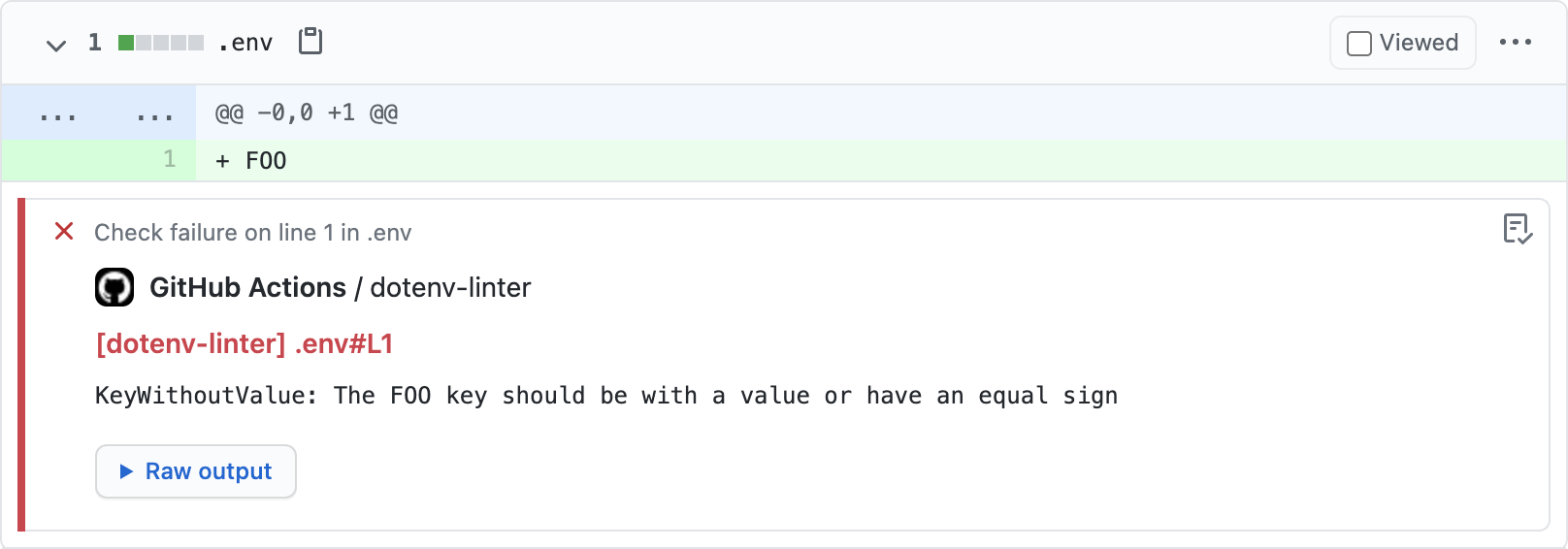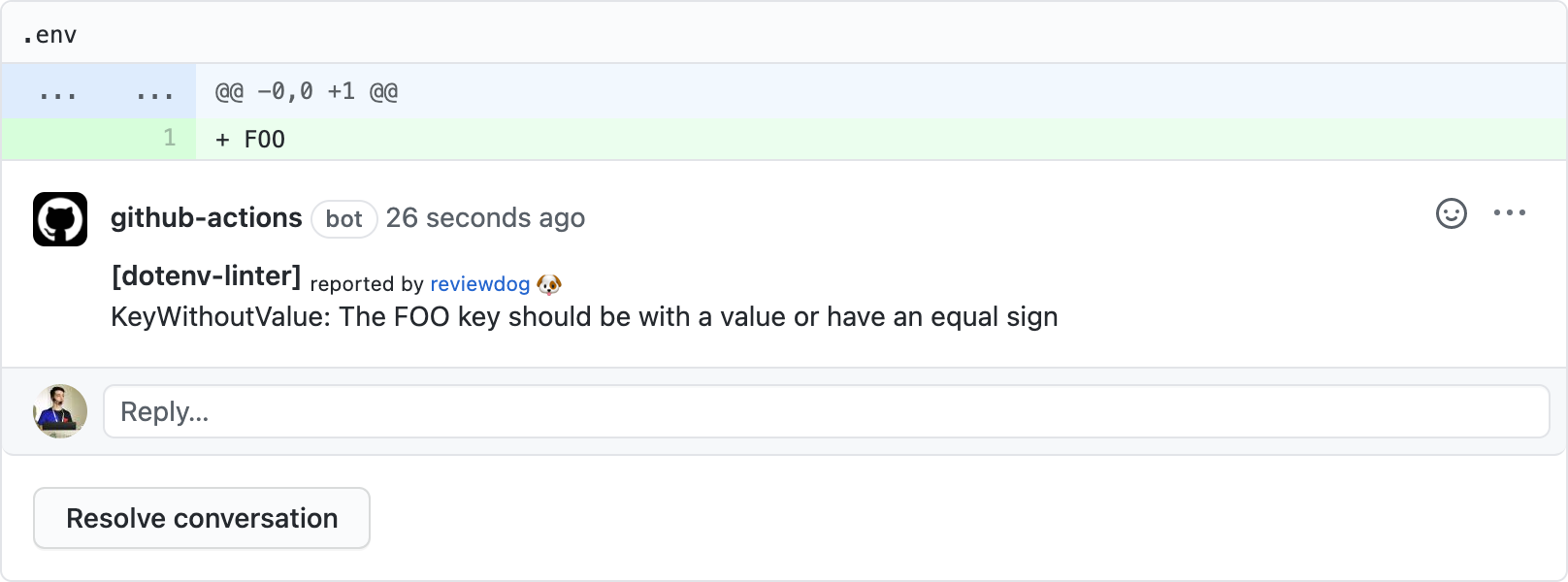Modern development is so complex that it is simply impossible to keep everything in mind, especially various practices for writing code. This is where linters come to the rescue. They help maintain certain standards in the project and keep the code base in order.
I develop projects in a variety of programming languages such as: Rust, Go, Ruby and I connect different linters to each project. To make sure my code meets all quality standards, I run linters using CI services for every commit submitted to GitHub.

Reviewdog
It is very important to me that the result of linters’ work is always visible on GitHub, for example, in the form of comments to pull requests. To do this, I use reviewdog, which automates code review and provides seamless integration of any linter with GitHub. Here’s why reviewdog is so good:
- It is written in Go and can be compiled into a binary file and connected to any project, regardless of the programming language;
- It can work with any linters, you just need to redirect the linter result to the
reviewdoginput and define the linter output format, for example,$ dotenv-linter | reviewdog -efm="%f:%l %m"; - It supports a large number of linters out of the box, such as dotenv-linter, rubocop and others.
GitHub Actions
As cool as reviewdog is, I still had to spend time setting up CI services to run linters for each project. But that all changed when GitHub announced GitHub Actions, a new tool for automating workflows. Simply put, this is a full-fledged CI/CD service with great capabilities that allows you to create your own actions and share them with the community.
Having switched to GitHub Actions, I decided to write my own actions to run popular linters. By doing this, I could simplify the process of connecting linters to any project. This is what I ended up with:
All of my actions can publish linter comments in two modes.
- As an annotation in the code (
github-pr-check):

- And in the form of comments to pull requests (
github-pr-review):

Ruby Actions
The first 3 actions (action-rubocop, action-brakeman and action-reek) allow you to run popular linters from the Ruby community: rubocop, brakeman and reek. To connect these actions to your project, you just need to create a .github/workflows/linters.yml file with the following content:
# .github/workflows/linters.yml
name: linters
on: [pull_request]
jobs:
linters:
name: runner / linters
runs-on: ubuntu-latest
steps:
- name: Check out code
uses: actions/checkout@v1
- name: rubocop
uses: reviewdog/action-rubocop@v1
with:
rubocop_version: gemfile
rubocop_extensions: rubocop-rails:gemfile rubocop-rspec:gemfile
- name: brakeman
uses: reviewdog/action-brakeman@v1
with:
brakeman_version: gemfile
- name: reek
uses: reviewdog/action-reek@v1
with:
reek_version: gemfile
For all these action it is possible to specify the linter version. There are 3 options available:
- An empty value or no version - the latest version will be installed;
gemfile- the version fromGemfile.lockwill be installed;1.0.0- the specified version will be installed.
Action-rubocop also provides the ability to install additional extensions. The following extensions are installed by default: rubocop-rails, rubocop-performance, rubocop-rspec, rubocop-i18n, rubocop-rake. But this can be overridden using the rubocop_extensions attribute.
Dockerfile Action
The next action, action-hadolint, looks for all Dockerfile in the project and checks them using the hadolint linter. Usage example:
# .github/workflows/hadolint.yml
name: hadolint
on: [pull_request]
jobs:
hadolint:
name: runner / hadolint
runs-on: ubuntu-latest
steps:
- name: Check out code
uses: actions/checkout@v1
- name: hadolint
uses: reviewdog/action-hadolint@v1
with:
hadolint_ignore: DL3008
Dotenv-linter Action
And last but not least, is action-dotenv-linter. It allows you to easily and simply check all .env files on the project. Usage example:
# .github/workflows/dotenv_linter.yml
name: dotenv-linter
on: [pull_request]
jobs:
dotenv-linter:
name: runner / dotenv-linter
runs-on: ubuntu-latest
steps:
- name: Check out code
uses: actions/checkout@v1
- name: dotenv-linter
uses: dotenv-linter/action-dotenv-linter@v2
with:
dotenv_linter_flags: --skip UnorderedKey
Find more GitHub Actions on the GitHub Marketplace page.
GitHub Actions is a cool workflow automation tool that allows you to completely replace all existing CI/CD services on a project. I wrote several GitHub Actions to launch popular linters, which allowed me to significantly simplify the process of connecting and configuring linters on each project.